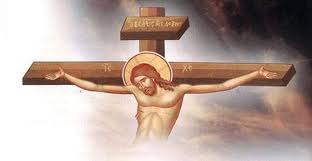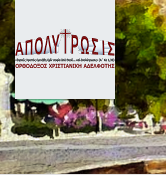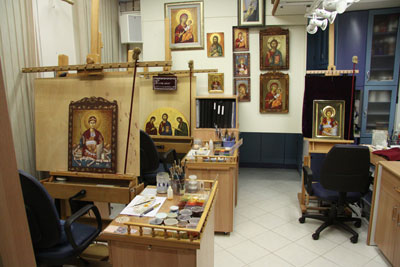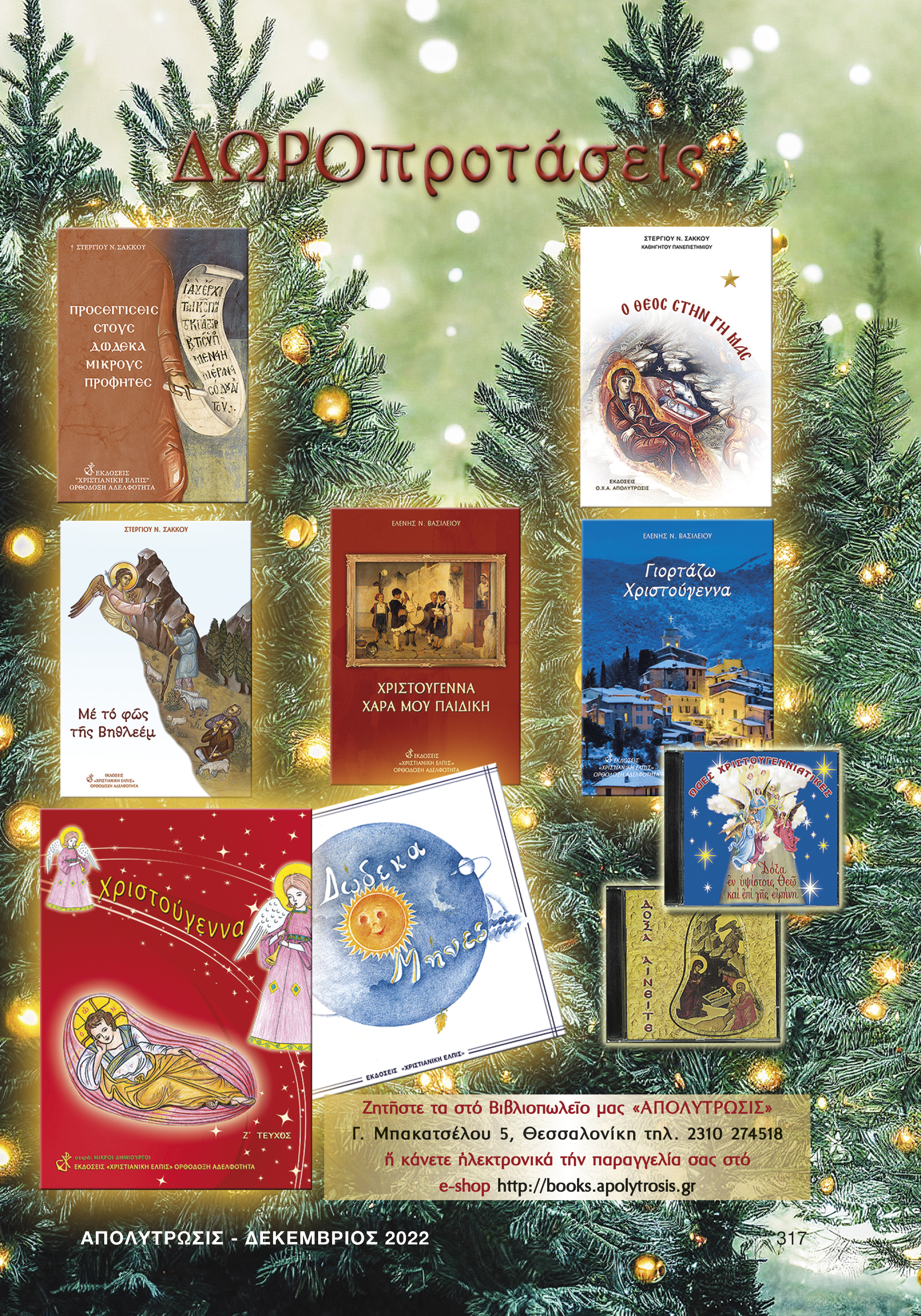It’s time for the Great Entrance now. The priest comes out through the northern door, proceeds and comes before the Beautiful Gate. The congregation with their heads bowed in reverence welcome the precious gifts. Then the priest says: “May the Lord, our God, remember us all in his Kingdom, now and ever, and unto ages of ages.” These words are a petition to Christ. They are taken from the prayer which the grateful thief, who was crucified to the right of Christ, said, “Remember me, Lord, when you come into your kingdom” (Lk 23:42). At that moment of the Divine Liturgy, we remember this grateful criminal and we repeat his moving and touching prayer. He is presented as an example of faith and sincere repentance. No one is born a criminal or a saint. He becomes one. A child may be born with a heavy heredity which he receives from his parents and may have the inclination and tendency towards crime. But in spite of the pressure the sinful nature exercises on man, he is still free to choose the good or the bad.
All of us know from the Holy Gospels that Pontius Pilate, the governor of Judea, made a great effort that Christ might not be condemned to death, as his fanatic enemies were asking. Pilate having in his mind a custom which took place during the holy day of Passover, according to which the governor would spare the life of a condemned convict, whoever the people wanted, proposed to set Christ free. But the mob which was made fanatical by the archpriests, the scribes and the pharisees, cried out “no”! Pilate retreated and signed the condemnation of Christ. Two thieves were to be executed together with him.
So, the two thieves with Christ between them, carrying their crosses, climbed to terrible Golgotha. Many people accompanied them. Christ’s enemies even in this hour, cursed and mocked him. The two thieves were influenced by the general clamor and they too, were insulting him.
 But Christ on the cross, before delivering up his spirit to the heavenly Father, did a miracle. One of the thieves who was crucified at Christ’s right side, realized that Christ was not a common man, because he hid in himself an unattainable grandeur. In the cruel hours of the crucifixion, when people lost control of themselves, cursed and swore, Christ blessed and prayed for his crucifiers. His words “Forgive them, Father; for they do not Know what they do” (Lk 23:34), touched the thief’s heart. He undertook Christ’s defense and rebuked the other thief. If he were free, he would fall before Christ’s feet and ask for his mercy. His body was tied but his soul was free and flew to heavenly worlds and directed a prayer. It is a prayer which since then and until the end of the ages will touch the sinners’ hearts and will be their own prayer: “Remember me, Lord, when you come into your kingdom” (Lk 23:42).
But Christ on the cross, before delivering up his spirit to the heavenly Father, did a miracle. One of the thieves who was crucified at Christ’s right side, realized that Christ was not a common man, because he hid in himself an unattainable grandeur. In the cruel hours of the crucifixion, when people lost control of themselves, cursed and swore, Christ blessed and prayed for his crucifiers. His words “Forgive them, Father; for they do not Know what they do” (Lk 23:34), touched the thief’s heart. He undertook Christ’s defense and rebuked the other thief. If he were free, he would fall before Christ’s feet and ask for his mercy. His body was tied but his soul was free and flew to heavenly worlds and directed a prayer. It is a prayer which since then and until the end of the ages will touch the sinners’ hearts and will be their own prayer: “Remember me, Lord, when you come into your kingdom” (Lk 23:42).









